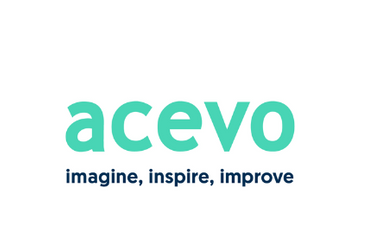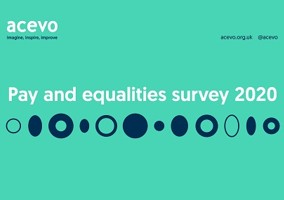The proportion of charity leaders from Black, Asian, and minoritised ethnic backgrounds has remained at 7% for the second year running, according to new research.
Fewer than 1% of respondents to ACEVO’s Pay and Equalities Survey 2023, published today, were Black, down from 2% last year and 4% of the population of England and Wales.
According to the 2021 government census, 18% of people in England and Wales overall defined as being from Black, Asian, mixed or other ethnic groups
ACEVO reported that 25% of charity leaders had a “disability, learning difference or health condition”, up from 20% last year and 17% in 2021.
This included 14% of respondents with a long-term illness or health condition, 6% with a mental health condition and 4% with a physical or mobility impairment.
Overall, 17% of CEOs who responded to the survey went to an independent or fee-paying school, compared with 7% of the UK population.
The survey finds an overall gender pay gap of 8.3%, down from 10.8% in 2022, but higher than the 7.6% recorded in 2021.
This, the report says, is because women predominantly occupy leadership roles in smaller charities, which in turn perpetuates disparities in pay, pensions, and professional development opportunities.
ACEVO chief executive Jane Ide said she was “deeply disappointed and frustrated” by many of the report’s findings.
CEO salaries remain ‘behind market standards’
This year’s survey ran from 17 April to 11 May and received responses from 826 charity chief executives.
It finds that these CEOs earned a median annual basic salary of £58,863 in 2023, compared with £56,000 in 2022.
Three-quarters of respondents reported getting a pay rise over the past year but the report says that CEO salaries remained “behind market standards” and lower than those of their peers in other industries.
A third said that they did not have regular, formal salary reviews, with smaller charities less likely to offer this. Meanwhile, the availability of professional development opportunities for CEOs was in line with last year’s finding, at 50%.
Nearly half reported being satisfied with their chair and board’s support for dedicating time and resources to CEO development, compared with 60% in 2017 and 53% in 2020.
Over eight in 10 said that they would recommend the sector as a “desirable place to work”, with over 70% willing to remain in the sector in the next five years.
ACEVO boss ‘disappointed and frustrated’ by findings
Ide said: “We’re seeing no progress on the representation of Black, Asian or minoritised ethnic leaders in our sector. The gender pay gap remains significant.
“Around half of our leaders don’t have access to professional development, and a third aren’t given the courtesy of a clear, regular process for a review of their pay and conditions.
“Our sector has a problem: over the next decade and beyond we’re likely to see increased competition for talent from other sectors as BCorps and mainstream businesses position themselves as great places to work for those who want to make a difference in the world – but with all the pay and benefits that come from working in the private sector.
“If our sector is going to be sustainable in the future we have to think hard about how we create pipelines of talent and skills, and then retain and develop those pipelines into a leadership that can navigate the challenges of the future with agility and intelligence.
“For the sake of our sector but above all for the people and causes we’re all here to serve we have to address these issues. And most of them are entirely within our gift to address right now, if we choose to do so.”
Related articles












